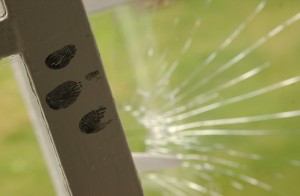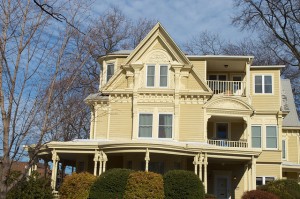 Healthcare facilities pose a unique security situation. By nature they hold a lot of risk other organizations don’t necessarily have to deal with. Most healthcare facilities are open to the public and provide care for a vast array of people on a daily basis. Many facilities also house expensive and often sought after narcotics or medications. Also, recent changes to healthcare policies are having an effect on everyday operations and their implications may not be fully realized yet. These factors combined with the unpredictability of patient and public behavior make healthcare facilities particularly sensitive environments that require special attention when it comes to security.
Healthcare facilities pose a unique security situation. By nature they hold a lot of risk other organizations don’t necessarily have to deal with. Most healthcare facilities are open to the public and provide care for a vast array of people on a daily basis. Many facilities also house expensive and often sought after narcotics or medications. Also, recent changes to healthcare policies are having an effect on everyday operations and their implications may not be fully realized yet. These factors combined with the unpredictability of patient and public behavior make healthcare facilities particularly sensitive environments that require special attention when it comes to security.
As licensed security system integrators our team at Perfect Connections, Inc. understands the changing healthcare climate is producing security risks that need to be addressed. We have been providing comprehensive security system solutions to facilities throughout northern and central New Jersey since 1992. Protecting the integrity of any healthcare facility is crucial to the safety of not only its patients and the general public, but medical staff as well.
Unfortunately, healthcare facilities are no strangers to criminal activity. The 2012 Crime and Security Trends Survey, based on responses from 208 healthcare organizations across the United States, showed that incidents of crime at healthcare facilities are on the rise. In just two years from 2010 to 2012 these incidents rose 37% from a reported 15,000 to more than 20,500. Keep in mind these were reported events. The US Department of Justice estimates that at least half of the crimes committed go unreported. A reason organizations fail to report disturbances is at least partially due to the fact that they don’t want to look bad in the public eye and potentially lose patronage.
There are many contributing factors to the rise in criminal incidents at healthcare facilities. For one, many facilities are open to the public 24 hours a day, 7 days a week which can leave them vulnerable. Outside disputes sometimes spill into the healthcare environment causing disturbances and putting staff and patients at risk. Many facilities house pharmaceuticals which can attract substance abusers and drug dealers, increasing the risk of narcotic theft and violence. Another security issue facilities face is when their real estate expands. When healthcare organizations acquire new facilities it can be difficult to create consistency in mitigating risks and instituting security protocols, especially across sprawling campuses.
The Affordable Care Act (ACA also known as “Obamacare”) poses a not so obvious concern when it comes to healthcare security. How can a healthcare policy affect security you ask? According to James Barbour, Market Research Analyst on the Kratos PSS Marketing Team, the ACA will undoubtedly have implications on healthcare budgets. He says, “Hospitals will guard their budgets cautiously, and security—traditionally viewed as a cost center—will feel the pinch.” Experts also estimate a rise in patient volume due to more people being insured. This has the potential to overwhelm facilities that are already stretched too thin due to budget cuts. The repercussions of the ACA have not been fully realized in general, however security integrators and healthcare professionals should be thinking about ways to effectively and economically manage the risks associated with the healthcare environment.
Often times a healthcare facility will employ physical security guards to help ensure the safety of their staff and patients. However, in the changing economy and in light of policy changes we know security may be faced with spending challenges. Security guards may be on the chopping block when it comes to budget costs, so how can facilities make up for the lack of physical security? Implement comprehensive security systems that include access controls, surveillance, monitoring and notification systems, and lockdown capabilities.
Access control systems can help limit who can gain entry to specific areas of your facility. This would help in sensitive areas, like pharmaceutical storage and data centers. According to Joe Liguori, president of the Board of Directors Security-Net, “healthcare facilities are finding that there is a long-term cost savings by implementing access control for storage and supply closets, for example, eliminating the need to change locks and replace lost or stolen keys.” Access control can also help decrease or eliminate theft. By using different methods like card readers, fobs, or sometimes biometrics credentials are harder to duplicate or steal making it easier for medical staff to focus on what is most important, their patients.
In addition to access control, surveillance plays a key role in crime prevention and overall safety. Security cameras allow an organization to have eyes across their entire facility including areas that often go unprotected like parking lots/garages. Having a monitored security system, especially in regards to surveillance, helps alert the proper authorities faster in an emergency. In tandem with a monitoring service, a mass notification system can notify the right personnel in an emergency or dangerous situation as it is occurring. Being notified of an event as it happens would allow for immediate action and hopefully prevent further damage. This is where lockdown capabilities would be beneficial as well. All it would take is the touch of a single button from a facility member, and part or all of a building could be shut down. This is a particularly beneficial feature that can keep a perpetrator out of certain areas in high risk scenarios. Fortunately, lockdown capabilities can sometimes be easily integrated with existing access control features.
While crime statistics can seem daunting, it’s important to remember that many, if not most, healthcare facilities are generally considered safe. However, as a healthcare professional or facilities manager it behooves one to consider the risks specific to their organization and how they can be mitigated. As security system integrators, our licensed team at Perfect Connections, Inc. has been providing comprehensive security solutions to healthcare facilities throughout northern and central New Jersey for the past 23 years. Just like your patients, we know that no two facilities are exactly the same and that it takes an individualized approach to solve specific needs.
If you live or run a healthcare facility in Central or Northern New Jersey and would like information on any of the topics discussed above, please call 800-369-3962 or simply CLICK HERE.
Image Credit: Image by NEC Corporation of America-Flickr-Creative Commons
 When it comes to security challenges in healthcare facilities EDs (Emergency Departments) are truly unique. There’s a diversity in not only the people that come in and out, but the services provided as well. Never mind the fact that EDs are open 24/7 and can’t deny treatment to anyone. This leads to a complicated dynamic that poses security risks to staff, patients, and guests. As a leading security systems provider in northern and central New Jersey, our team at
When it comes to security challenges in healthcare facilities EDs (Emergency Departments) are truly unique. There’s a diversity in not only the people that come in and out, but the services provided as well. Never mind the fact that EDs are open 24/7 and can’t deny treatment to anyone. This leads to a complicated dynamic that poses security risks to staff, patients, and guests. As a leading security systems provider in northern and central New Jersey, our team at  contributes, gets along, and the sun is always shining, right? Unfortunately, just as the weather is unpredictable, so is human nature. Criminals don’t care if your neighborhood is considered safe, if they see vulnerability, they see opportunity. Don’t fool yourself into thinking your home is safe because of your surroundings. Statistically,
contributes, gets along, and the sun is always shining, right? Unfortunately, just as the weather is unpredictable, so is human nature. Criminals don’t care if your neighborhood is considered safe, if they see vulnerability, they see opportunity. Don’t fool yourself into thinking your home is safe because of your surroundings. Statistically, 
 olving as are the measures and technology to keep it secure. Technology can and should play an integral role in the protection and management of any healthcare facility. Healthcare facilities can be anything from a hospital to an assisted living environment, or a portable x-ray unit to a rehab center. While most of these environments are typically considered safe, the need for security is vital nonetheless. There are a multitude of external and internal factors that determine a facilities’ security needs. Safety in a healthcare environment is not only important to the staff and facility manager, but the public as well. Are your patients, staff, and assets being adequately protected?
olving as are the measures and technology to keep it secure. Technology can and should play an integral role in the protection and management of any healthcare facility. Healthcare facilities can be anything from a hospital to an assisted living environment, or a portable x-ray unit to a rehab center. While most of these environments are typically considered safe, the need for security is vital nonetheless. There are a multitude of external and internal factors that determine a facilities’ security needs. Safety in a healthcare environment is not only important to the staff and facility manager, but the public as well. Are your patients, staff, and assets being adequately protected? Drug addicts and other substance abusers can be problematic if on site pharmaceuticals are not effectively fortified. Substance abuse can be an internal staff issue as well. In fact, the
Drug addicts and other substance abusers can be problematic if on site pharmaceuticals are not effectively fortified. Substance abuse can be an internal staff issue as well. In fact, the  y’s techy world are probably being converted to digital data. A patient’s file contains personal and private information to be shared between caregiver and patient only. There is a heavy responsibility placed on healthcare organizations to uphold this confidentiality. Maintaining general
y’s techy world are probably being converted to digital data. A patient’s file contains personal and private information to be shared between caregiver and patient only. There is a heavy responsibility placed on healthcare organizations to uphold this confidentiality. Maintaining general  A custom security system is the best option because no two facilities are exactly the same; even if two buildings share the same schematics, the locations will be different, and the demographics of an area will be factored into the type of security needed. Some commonalities between systems may include features such as access controls for visitors, patients, and staff, video surveillance and alarm monitoring. According to
A custom security system is the best option because no two facilities are exactly the same; even if two buildings share the same schematics, the locations will be different, and the demographics of an area will be factored into the type of security needed. Some commonalities between systems may include features such as access controls for visitors, patients, and staff, video surveillance and alarm monitoring. According to 